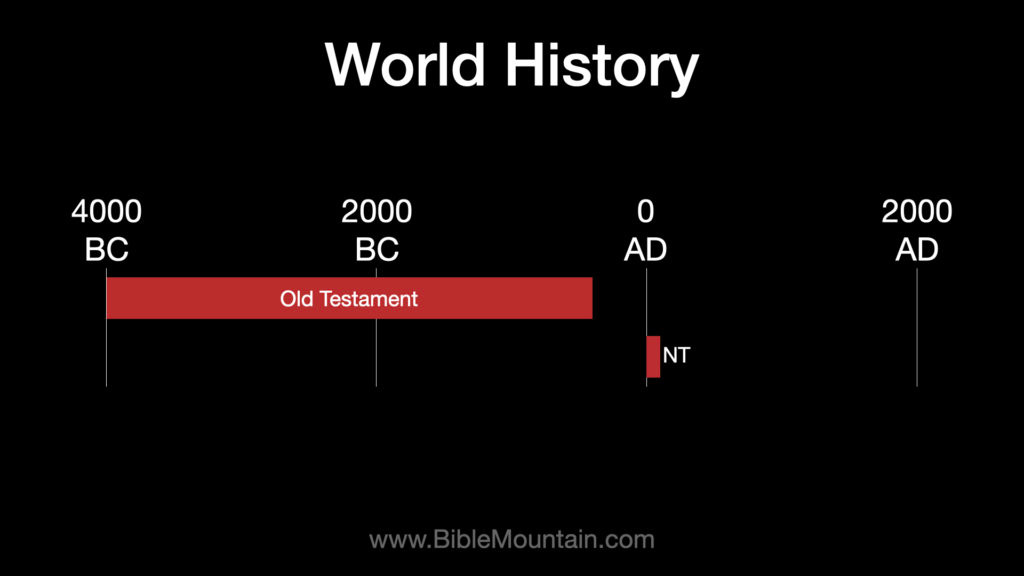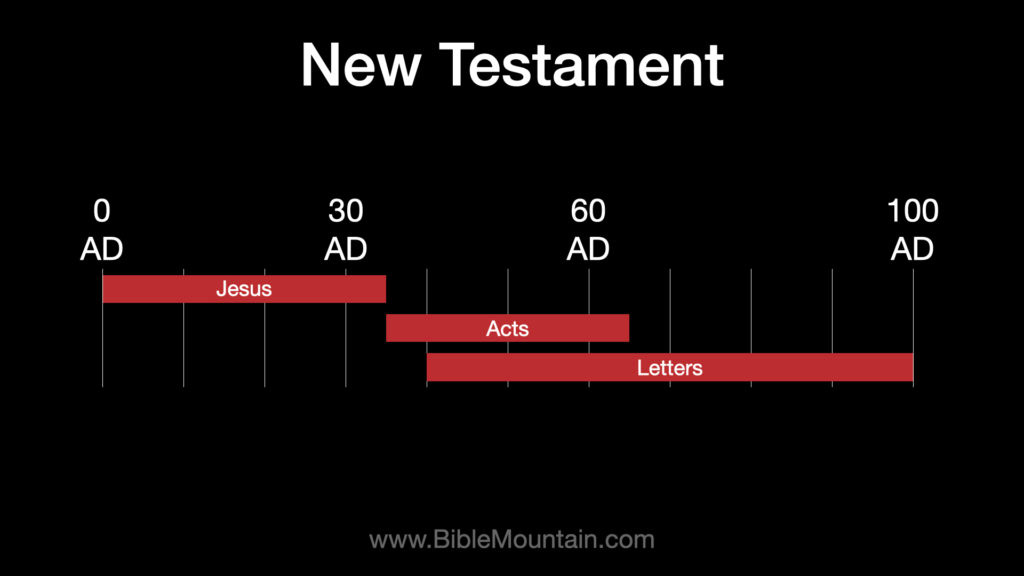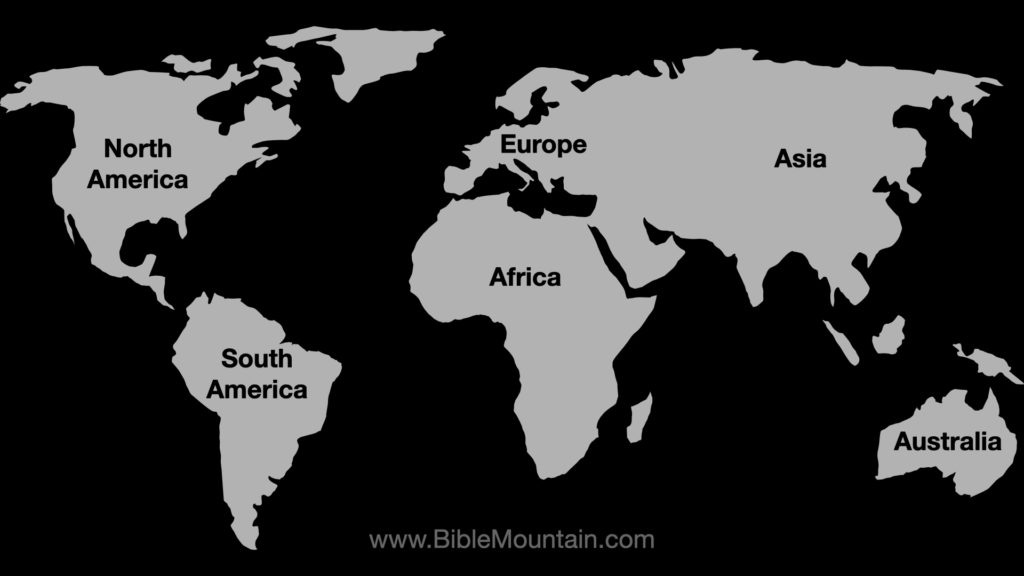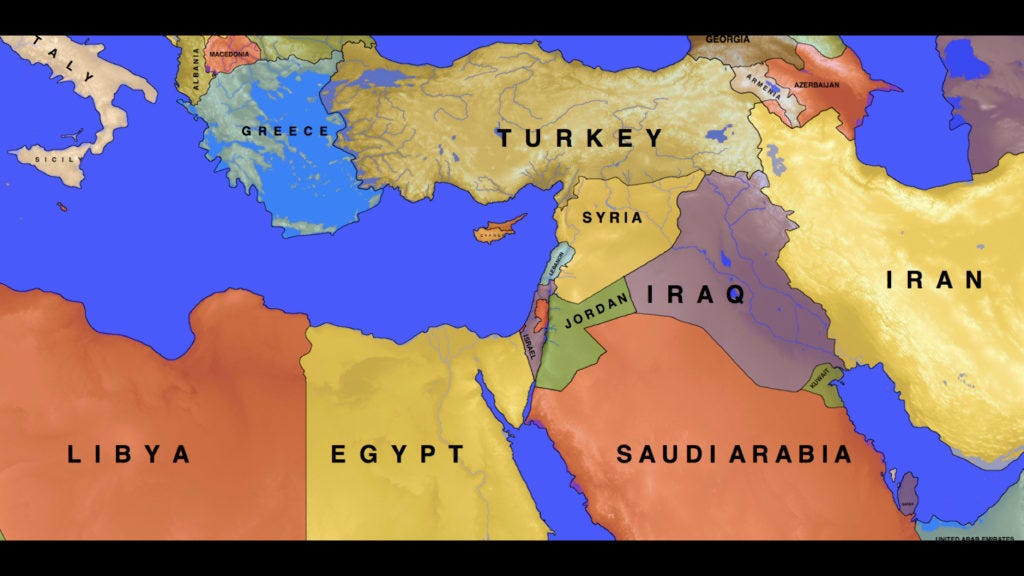The Third Letter of John
This is a study of the Third Letter of John. I'm going to start by talking about why this letter is in the Bible. Next, I’m going to talk about the biblical context, historical context, and geographical context. Then I'll read through the text verse by verse and make some comments as I go through the letter. Watch the video or scroll down to read a transcript.
Transcript:
This is a study of the Third Letter of John. I'm going to start by talking about why this letter is in the Bible. Next, I’m going to talk about the biblical context, historical context, and geographical context. Then I'll read through the text verse by verse and make some comments as I go through the letter.
Let’s think about why this book is in the Bible. What are we supposed to learn from this book? The answer is in verse 5.
3 John 5 Beloved, you are doing that which is faithful when you do things for the brothers, especially the ones who are strangers.
Verse 5 is the main message the author is conveying in this letter. This letter, the book of Third John, is about hospitality. It's about how to treat fellow believers, particularly fellow believers who are strangers, and fellow believers who are going out and sharing the gospel. I’ll talk about that some more later as I read through the letter.
Now let's talk about the biblical context.
As you know, the Bible is divided into the Old Testament and the New Testament. The Old Testament was written in Hebrew and Aramaic. The New Testament was written in Greek. The Old Testament tells us about people and events from before the time of Christ. The New Testament tells us about people and events from the first century AD. The Old Testament tells us about the nation of Israel. The New Testament tells us about Jesus and the church.
If we look at the table of contents of the New Testament, we see the first four books are Matthew, Mark, Luke, and John. Those books tell us about the life of Jesus. The next book is the book of Acts. That book tells us what the disciples of Jesus did after Jesus rose from the dead and went back to heaven. The last book of the New Testament is the book of Revelation. Revelation tells us about things that are going to happen in the future, things that have not happened yet even as of today.
In between the book of Acts and the book of Revelation are a lot of letters. The first group is a group of letters that were written by the Apostle Paul. These are letters that he wrote to various churches and individuals, giving them instruction on how Christians are to live.
After that is another group of letters that were written by various other men. They are also instructions to Christians and churches on how we as Christians are to live and conduct ourselves as followers and servants of Jesus Christ. One of those letters is the Third Letter of John. Third John is the shortest book in the Bible. It’s the third to last book of the Bible.
Now let's talk about the historical context. Above is a timeline of world history. Off to the left is 4000 BC, which is roughly when creation and the beginning of time took place. Off to the right is 2000 AD, which is roughly the time that you and I are living. The Old Testament tells us about people and events from creation, approximately 4000 BC, up to about 400 BC. The New Testament tells us about people and events from the first century AD.
Let's take a closer look at the New Testament. Above is a timeline of the first century AD. Off to the left is 1 AD. Off to the right is 100 AD. Jesus lived here on Earth from approximately 1 AD up to the mid 30s AD. The first four books of the New Testament tell us about the life of Jesus, and the things He did and taught.
The book of Acts tells us about people and events from roughly the mid 30s AD up to about the mid 60s AD. All the letters in the New Testament were written anywhere from about 40 AD up to the end of the first century AD. The book of Revelation was written towards the end of the first century AD.
Next, let’s talk about the geographical context. Above is a map of the world. In the center are Europe and Africa. Off to the left is North and South America. Off to the right is Asia and Australia. The area right in the middle is known as the Middle East. The events of the Bible took place in the Middle East.
The Middle East is a very significant piece of land. If you think about ethnic groups, the three basic ethnic groups of the world are Europeans, Africans, and Asians. Those three ethnic groups meet each other in the Middle East. That’s why the Middle East has always been a very strategic and important piece of land. As I said earlier, all the events of the Bible took place in the Middle East.
Let's take a closer look at the Middle East. Above is a map of the Middle East. During the Old Testament time period the major world empires were found in Egypt and Mesopotamia. Those areas are known today as Egypt and Iraq. The events of the Old Testament took place in the right half of the map above.
Between the Old Testament and New Testament there was a shift westward. Between the Old Testament and New Testament, Greece was the dominant world power for a time. By the time the events recorded in the New Testament took place, Rome was the dominant world power. This was a shift westward of the geopolitical center of the world.
That shift is reflected in the New Testament. The events in the New Testament took place in the left half of the map above. The New Testament starts with the life of Jesus, which took place predominantly in Israel. Then when we get to the book of Acts, we read about the apostles of Jesus taking His message to the world. The book of Acts tells us how they took the message up into Syria and Cyprus. Then they took the message to Turkey, Greece, and eventually to Rome. Again, the events of the New Testament took place in the western half of the Middle East, which was very different from the Old Testament. The events in the Old Testament took place in the Eastern half of the Middle East.
The Third Letter of John was written while the apostles of Jesus and other Christians were taking the message of Jesus to the world. As the gospel message was spreading from Israel out through the rest of the known world, various men wrote the letters in the New Testament to give instructions to Christians regarding how we should live. Third John was one of the letters that was written as the spread of Christianity was taking place.
Now let’s look at the text itself.
3 John 1. The elder to the beloved Gaius, whom I love in truth.
We see in verse one who wrote the book. The author is identified as the elder. It doesn't tell us who the elder was, it simply calls him the elder. You want to keep in mind as you're reading the letter and interpreting it that we don't really know for sure who wrote it.
3 John 2. Beloved, in everything I pray for you to prosper and be healthy, just as your soul prospers.
This verse might make some people nervous. We see the word prosper and the word healthy. This almost sounds like the health and wealth gospel or the prosperity gospel, but it's not. The health and wealth philosophy or the prosperity gospel says that Christians can and should be healthy and wealthy. But this letter does not say that. What we see in this letter is that the author prayed that Gaius would prosper and be healthy, but there's nothing here to say that Gaius would indeed be healthy and prosperous. There was no guarantee that Gaius would have health and wealth in his life. So you cannot use this verse to teach the health and wealth philosophy.
3 John 3. Indeed, I was made exceedingly happy by brothers coming and bearing witness to your faithfulness, inasmuch as you walk in truth. 4. I do not have any greater joy than when I hear my children are walking in the truth.
We see here the author expressed joy that Gaius was walking in the truth. The author called Gaius one of his children and talked about the joy that he experienced when his spiritual children walked in truth. The author was specifically talking about spiritual children, but the same is true of physical children. For parents it's very joyful when your children grow up to be good, responsible adults who live a life that's pleasing to the Lord.
3 John 5. Beloved, you are doing that which is faithful when you do things for the brothers, especially the ones who are strangers.
I mentioned earlier that this is the main thrust of this letter. This is the main point the author wanted to get across. He said Gaius was doing that which is good when he does things for the brothers, especially those who are strangers. Notice the word strangers. It's not just doing something for fellow Christians who are known to you, who you are friends with. What’s particularly emphasized and complemented here is the idea of doing good things for fellow Christians who are strangers, those who are unknown to you.
3 John 6. They bore witness to your love in front of the church. You will do well to send them on their way in a manner worthy of God.
Let's look at this phrase “worthy of God”. If you would have an opportunity to do something for the ruler of your country or a king or queen, you would put a lot of thought and effort into that. You would want to do the very best that you can. You would want it to be worthy of a king, queen, or president. Likewise, in this verse the author talked about treating fellow Christians who are strangers in a manner that would be worthy of God Himself. That concept of being worthy of God Himself is a very high standard. It’s something very difficult to achieve, but ultimately that should be our objective. We should serve God in a manner that is worthy of God.
3 John 7. Indeed, they went out for the Name, taking nothing from the Gentiles.
Notice this concept of “went out for the Name”. The Name refers to Jesus Himself. These strangers were men who went out for the sake of the Name. They went out for the sake of Jesus. They went out for the sake of sharing the gospel, the good news of Jesus.
3 John 8. Therefore, we are obligated to lift up such men, in order that we might become fellow workers for the truth.
Let's think about this concept of being fellow workers for the truth. It's easy for us to think that evangelists and missionaries are the ones who go out and do ministry. Indeed, they do go out and do ministry, but this verse teaches us that the people who support the evangelists and missionaries are fellow workers. That means when we support the people who go out and do evangelism and missionary work, we are also participating in that work with them. We are part of their ministry. We are doing evangelism and missionary work by supporting those who go out and do the work.
3 John 9. I wrote something to the church, but Diotrephes, desiring to be first, does not receive us. 10. Because of this, if I come, I will point out his deeds which he is doing, slandering us with evil words. And not content with that, he does not welcome the brothers, and he hinders those who want to, and casts them out of the church.
What we see in verses 9-10 is an example of what we should not do. Diotrephes wanted to be first. He was not helping fellow believers. He was not helping those who were strangers. The author criticized Diotrephes for his failure to do that. This is an example of the kind of behavior we should not emulate.
3 John 11. Beloved, do not imitate that which is evil; instead, imitate that which is good. The one doing good is from God. The one doing evil has not seen God.
This is a clear statement that's familiar to us, and probably logical to us. We should imitate good and not evil. The key for us is to make sure we have a correct concept of good and evil. One of the challenges we face in 21st century America is that things that are bad are being called good, and things that are good are being called bad. Unfortunately, a lot of the conventional wisdom we have within Christianity about what is right and wrong, and about what is good and evil is actually based more on what society tells us than it is based on what the Bible actually says. As Christians who want to be faithful to God, faithful to Jesus and faithful to the Bible, we have to make sure we know what the Bible actually says. We have to make sure we know what the Bible calls good and evil, and make sure we're imitating the biblical concept of good, not our society's concept of good.
3 John 12. Demetrius has received a good testimony from everyone and from the truth itself. And we also bear witness, and you know that our testimony is true. 13. I had many things to write to you, but I do not want to write to you with ink and pen. 14. Now I hope to see you soon, and we will speak face to face. 15. Peace be to you. The friends greet you. Greet the friends by name.
That is the end of The Third Letter of John. Remember, the main thrust of this letter has to do with hospitality. Let’s look again at verse 5
3 John 5. Beloved, you are doing that which is faithful when you do things for the brothers, especially the ones who are strangers.
This is the main message the author of Third John wanted to communicate to Gaius. It is good to do things for fellow Christians who are strangers, who are going out for the sake of Jesus and sharing the good news of Jesus Christ. We should help them. As we help them, we are fellow workers with them in the mission of sharing the good news of Jesus Christ.
Thanks again for visiting Bible mountain. If you haven't already done so, please join my email list. My email list is free. In order to join, go to Bible mountain.com, click on email, and that will take you to a page where you can sign up. Your email address will not be sold or given away.
Once again, thank you for watching Bible mountain.
Scripture quotations from 3 John taken from a translation by Bible Mountain.






